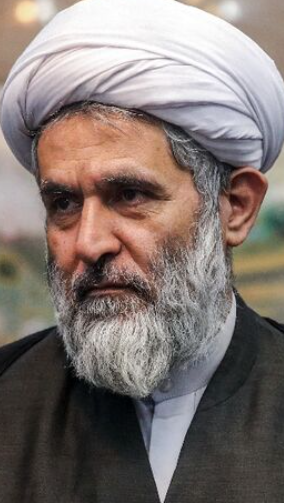July 29, 2022

Hossain Taeb, the embattled head of the Pasdaran’s Intelligence Organization, has been replaced after 13 years. The Pasdar announcement did not say if Taeb had been fired or resigned, just that a new intelligence chief had been named.
Gen. Mohammad Kazemi was appointed to the post June 23 by order of Hossain Salami, commander-in-chief of the Pasdaran. Taeb, 59, himself was named an “advisor” to Salami, a common parking place for displaced officials.
Taeb’s replacement came after almost a full week of speculation that Taeb might be sacked. He has a long history of overseeing terrorist operations abroad, but they have had a very low success rate, with Turkiye recently rolling up another Iranian cell plotting to kidnap Iranians and assassinate Israelis in Turkey.
In recent years, especially since the assassination of nuclear scientist Mohsen Fakhrizadeh on Iranian soil in November 2020, the poor performance of both the Pasdar Intelligence Organization and the Ministry of Intelligence – its arch-rival – has come under increased scrutiny.
The recent deaths over four weeks of eight people linked to the Pasdaran has also raised eyebrows about the competence of the Pasdaran in coping with Israeli operations inside Iran.
But Taeb’s successor, Kazemi, has for years been the head of counter-intelligence for the Pasdaran. So, if concerns for Israelis running wild inside Iran was the cause for Taeb’s replacement, the appointment of Kazemi makes little sense.
There were few to mourn Taeb’s departure. The mere mention of his name in the last decade prompted both fear and anger for his furious crackdowns on dissent within Iran.
The dearth of information prompted much online speculation about what was going on. Some suggested there may have been an Israeli attempt to assassinate Taeb that disabled him and led to the replacement announcement Others noted the recent arrival in Tehran of Russian Foreign Minister Sergey Lavrov and suggested Russia might have influenced the replacement decision behind the scenes. But all that was pure speculation with no evidence to support anything.
Supporters of former President Mahmud Ahmadi-nejad have been sharing his comments in an interview four years ago, when he said he had always opposed Taeb’s appointment. “He has no balance. He will cause chaos in everything. He only knows how to create bogus cases,” Ahmadi-nejad said in the interview in reference to the many cases of high profile arrests of Iranians, foreigners and dual nationals.
What was most interesting about the change in personnel was that the Israeli news outlet, Kaan News, reported Taeb was being replaced days before Iran announced it. That suggested Israel’s intelligence operation inside Iran was far, far more effective than Iran’s counter-intelligence operation.
Taeb is known for having very close relations with Khamenehi’s powerful son, Mojtaba, which suggested to some that Taeb’s departure may actually herald his appointment later to a higher post. But so far he has received no new posting.
Iran International said sources told it that Taeb was replaced as a result of long-simmering opposition to him from others in the security realm, including Intelligence Minister Esmail Khatib and Gen. Esmail Qaani, the chief of the Pasdaran’s Qods Force.
Those sources said Taeb’s opponents argued that the Pasdaran intelligence agency did not follow “elementary standards for neutralizing terrorist activities” in Iran and recruited “amateurish” agents for operations abroad that failed frequently and embarrassed Iran.
Others pointed out that Taeb’s schemes commonly invaded the turf of the Intelligence Ministry and the Qods Force and thus unsurprisingly sparked irritation in those agencies.
Taeb, a cleric, was made Pasdar intelligence chief in 2009 when the Pasdaran first created its own intel arm. It wasn’t long before his group and the Ministry of Intelligence were operating as competitive rivals, with each spending a good deal of effort trying to prove that the other was inept and unprofessional. The common wisdom holds that the Pasdar intel shop often mangled its facts and was more interested in being first than in being right in its analyses.
But it was in its operations rather than analysis that it has come under greater criticism, with Taeb pinpointed as the problem.
“He had failed to stop Israel’s infiltration and wasn’t very successful in retaliation operations outside the borders,” Peyman Taheri, an analyst close to Iran’s government, told The New York Times. “His removal is to bring in new blood and get both of these things under control.”


















